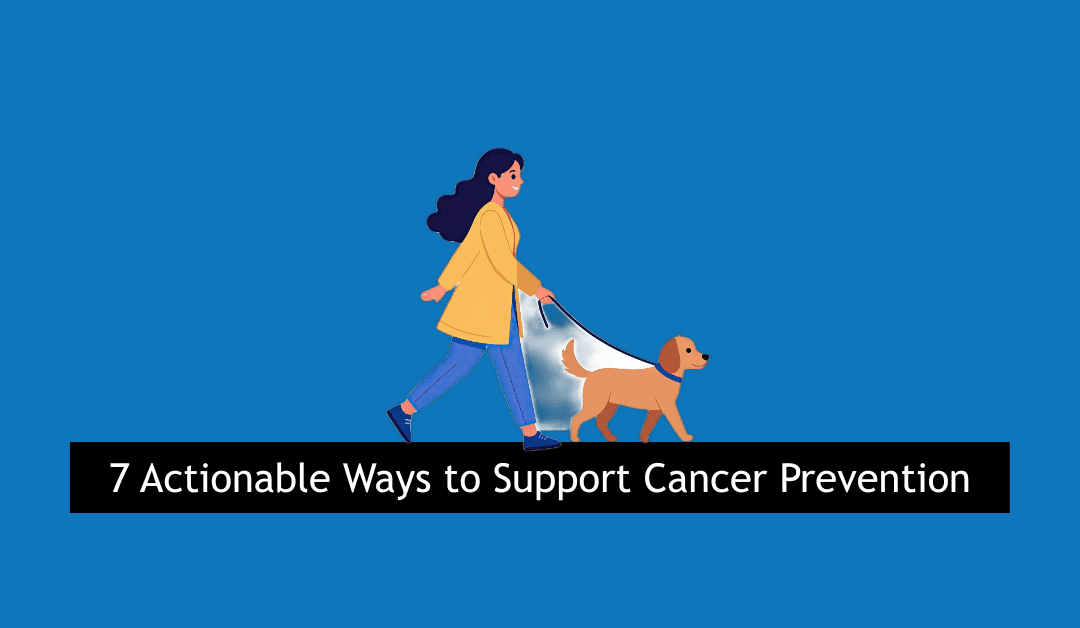
by Bag It Team | Feb 9, 2026 | Educational Articles
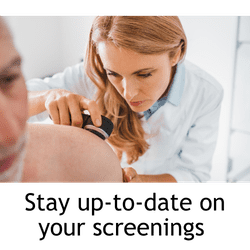 Cancer prevention can feel overwhelming — especially for individuals facing a diagnosis, caring for a loved one, or navigating survivorship. While not all cancers can be prevented, research shows that certain behaviors and informed decisions can help reduce risk and support long-term health.
Cancer prevention can feel overwhelming — especially for individuals facing a diagnosis, caring for a loved one, or navigating survivorship. While not all cancers can be prevented, research shows that certain behaviors and informed decisions can help reduce risk and support long-term health.
Prevention is not about blame or perfection. It’s about empowerment, access to accurate information, and progress over time.
At Bag It, we believe prevention, education, and support go hand in hand. By connecting people with trusted resources and practical tools, we aim to support informed decisions and healthier futures — and empower people to take small, meaningful steps.
What Does Cancer Prevention Mean?
Cancer prevention focuses on reducing risk where possible through lifestyle choices, early detection, and informed decision-making. These efforts not only support long-term health but can also help improve outcomes and quality of life.
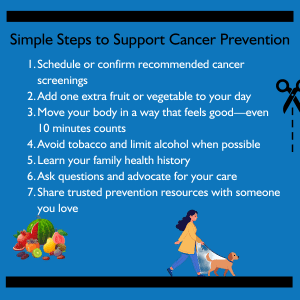 Actionable Ways to Support Cancer Prevention
Actionable Ways to Support Cancer Prevention
1. Stay Up to Date on Screenings
Regular screenings can help detect cancer earlier, when treatment may be more effective. Talk with a healthcare provider about screenings appropriate for your age, personal history, and risk factors.
2. Nourish Your Body
A balanced diet rich in fruits, vegetables, whole grains, and plant-forward foods supports overall health and may reduce cancer risk. Small changes — like adding one extra vegetable a day — can make a difference.
3. Move in Ways That Work for You
Physical activity doesn’t have to mean intense workouts. Walking, stretching, gardening, or gentle movement all count. Consistent movement supports physical and emotional well-being.
4. Avoid Tobacco & Limit Alcohol
Avoiding tobacco and limiting alcohol consumption are two of the most impactful steps individuals can take to reduce cancer risk.
5. Know Your Family History
Understanding your family’s health history can help guide conversations with healthcare providers and inform screening and prevention decisions.
6. Advocate for Yourself and Others
Ask questions, seek second opinions if needed, and encourage loved ones to stay informed. Prevention also includes access — to care, information, and support.
Prevention Is Part of the Bigger Picture
By sharing evidence-based resources and partnering with trusted organizations, we aim to meet people where they are — offering information that is practical, compassionate, and empowering across the cancer continuum.
Trusted Prevention Resources
We encourage exploring evidence-based resources from trusted organizations:
American Institute for Cancer Research (AICR)–Provides research-backed guidance on nutrition, physical activity, and lifestyle choices related to cancer prevention. AICR also contributes educational content included in Bag It bags.
American Cancer Society—Offers clear, accessible information on cancer prevention, screening guidelines, and healthy lifestyle choices.
National Cancer Institute (NCI)–NCI shares evidence-based cancer prevention and screening information for patients, caregivers, and providers.
Prevent Cancer Foundation—Focuses on prevention and early detection through education, awareness, and actionable screening resources.
And remember Bag It Cancer also consolidates information, tools and support from leading cancer organizations in our Cancer Resource Center.
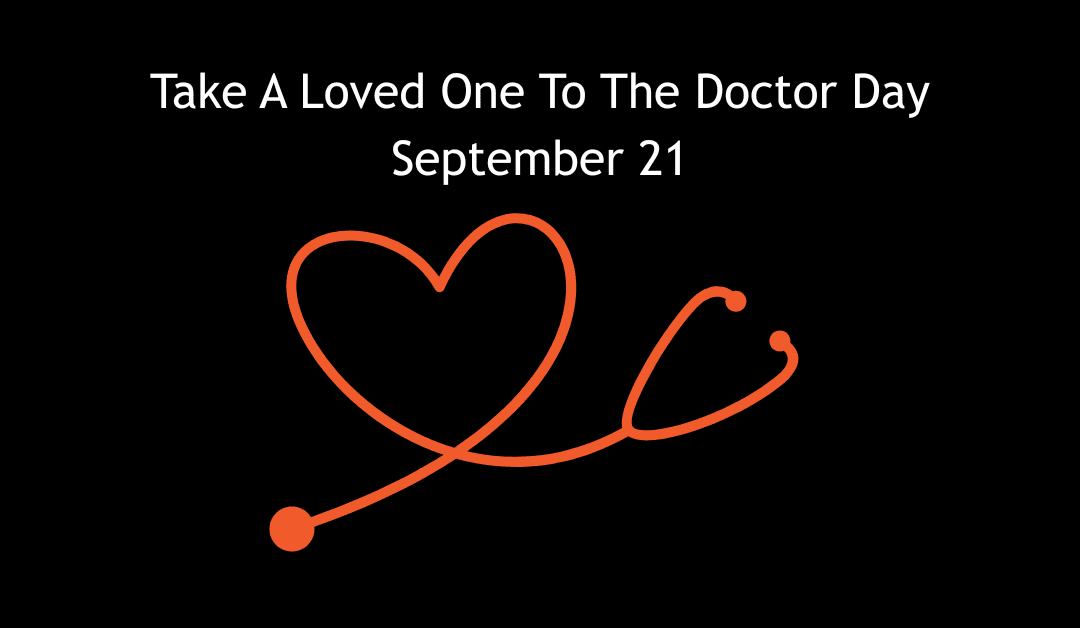
by Bag It Team | Sep 5, 2025 | Educational Articles
 September 21 marks Take a Loved One to the Doctor Day—a national reminder that good health isn’t just a personal responsibility; it’s an important way we can support each other.
September 21 marks Take a Loved One to the Doctor Day—a national reminder that good health isn’t just a personal responsibility; it’s an important way we can support each other.
Whether it’s a parent, spouse, sibling, neighbor or friend, many people put off important medical appointments for reasons ranging from busy schedules to fear of bad news. But preventive care and regular checkups are essential for catching health issues early, managing ongoing conditions, and maintaining overall well-being.
Why This Day Matters
- Early Detection Saves Lives–Many serious health conditions, like cancer, diabetes, and heart disease, have better outcomes when detected early. More about early detection.
- Breaking Down Barriers–Some loved ones may face language, transportation, or cultural barriers to accessing healthcare. Your presence can help bridge those gaps.
- Emotional Support Counts–Going to a doctor’s appointment can feel intimidating. Having someone by your side can ease anxiety and encourage open conversations with healthcare providers.
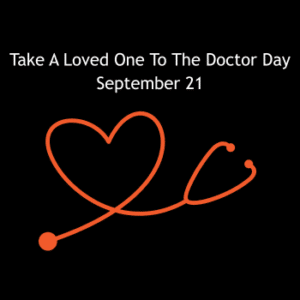 How You Can Participate
How You Can Participate
- Make an Appointment Together–Schedule a checkup for yourself and your loved one on or around September 21.
- Offer a Ride or Company–Even if you’re not the patient, being there for support can make a big difference.
- Help with Questions–Encourage your loved one to write down concerns or symptoms ahead of time so they get the answers they need.
- Celebrate the Step – After the appointment, enjoy a meal or activity together to mark the positive choice.
The Bottom Line
Good health is a gift we can help each other protect. This September 21 (or any day of the year), take the opportunity to show you care—by making sure someone you love gets the care they need. Sometimes, the best way to say “I love you” is with a ride to the doctor.
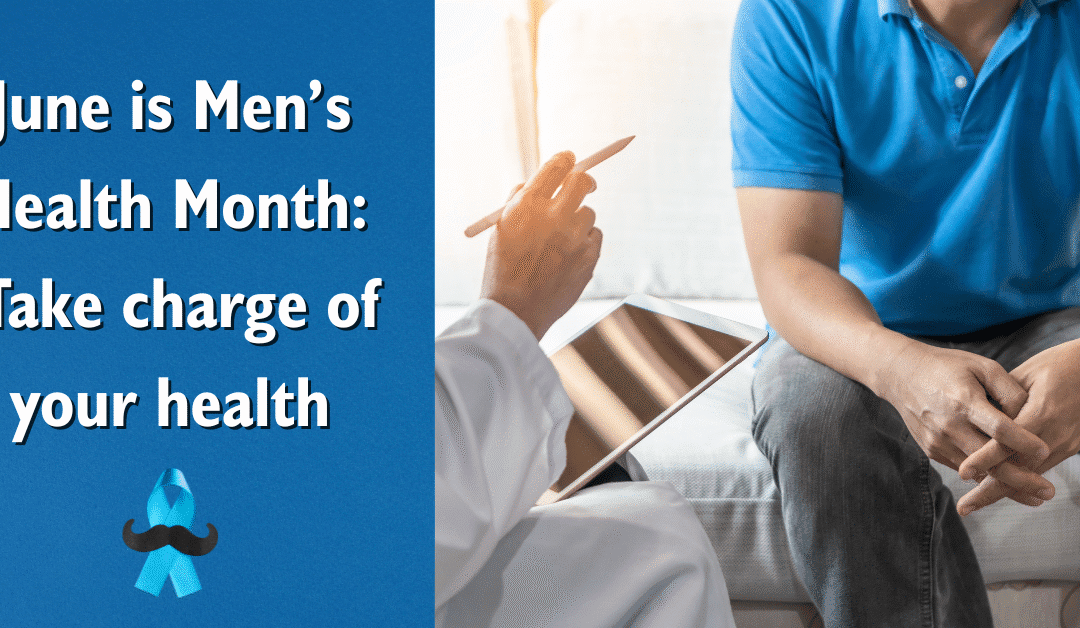
by Bag It Team | May 30, 2025 | Educational Articles
June marks Men’s Health Month, a time to raise awareness about preventable health problems and encourage early detection and treatment of disease among men and boys. At Bag It, we recognize how important it is to empower men with the tools and information they need—especially when facing a cancer diagnosis.
Cancer & Men: Know the Risks
 Men are more likely than women to be diagnosed with cancer and have a higher mortality rate. The most common cancers affecting men in the U.S. are:
Men are more likely than women to be diagnosed with cancer and have a higher mortality rate. The most common cancers affecting men in the U.S. are:
- Prostate cancer
- Lung cancer
- Colorectal cancer
- Bladder cancer
- Melanoma
Early detection is key. Men often delay routine checkups or ignore early symptoms. Regular screenings can catch issues before they become serious.
Tips for Taking Charge of Your Health
- Schedule annual checkups – Even if you feel fine, regular visits can help detect problems early.
- Know your family history – Some cancers run in families; talk with your doctor about any history of cancer.
- Get screened – Discuss appropriate cancer screenings with your provider (especially for prostate, colorectal, and skin cancer).
- Live healthy – Eat well, stay active, limit alcohol, don’t smoke, and protect your skin from the sun.
- Talk about it – Encourage the men in your life to prioritize their health, too.
How Bag It Cancer Can Help
If you or someone you know has been diagnosed with cancer, our Bag It Bag provides reliable, easy-to-understand materials to help patients feel informed, empowered, and organized. Men may not always ask for help—but they deserve support, too.
Let’s break the silence around men’s health and encourage the men in our lives to take action today.

Resources
General Men’s Health & Preventive Care
- Men’s Health Guidelines for Screening
- Men’s Health Month (Men’s Health Network) – Information, health facts, and advocacy resources dedicated to men’s health.
- CDC – Men’s Health – Covers key health risks, preventive steps, and tips for staying healthy.
Support for Men Facing Cancer
- Bag It – Get a Bag – Free resources to help patients feel informed, empowered, and organized.
- ZERO – The End of Prostate Cancer – Support, education, and advocacy specifically for those impacted by prostate cancer.
- COLONTOWN – A patient-led community for colorectal cancer
- GO2 for Lung Cancer – Education, screening & support for lung cancer
- CancerCare – Support for Men – Support groups, counseling, and educational workshops for men affected by cancer.
- Cancer Support Community – For Men – Emotional and practical support specifically geared toward men
Bag It Bags for Specific Cancers
- Prostate Cancer – Bag It and ZERO Prostate Cancer have partnered to develop 2 Bags of essential resources for patients and caregivers impacted by Advanced-Stage and Early-Stage Prostate Cancers.
- Colorectal Cancer –Bag It and Colontown have partnered to develop this Bag of essential resources for patients and caregivers impacted by colorectal cancer (CRC).
- Lung Cancer – Bag It and GO2 for Lung Cancer have partnered to develop this Bag of essential resources for patients and caregivers impacted by Lung Cancer.
Explore other Bag It Cancer-specific Bags.
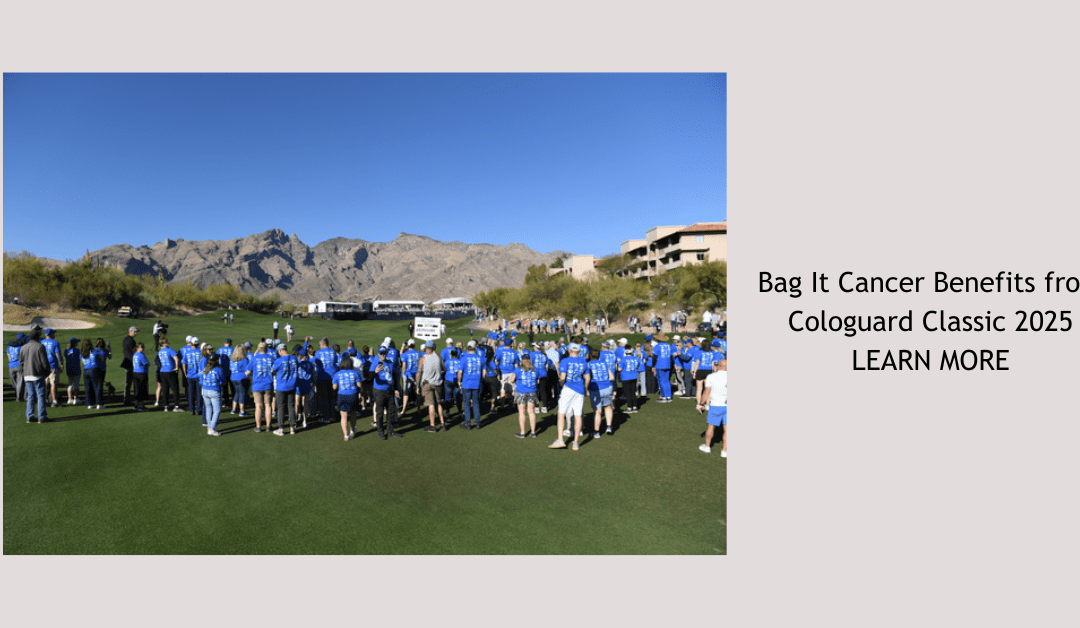
by Bag It Team | Mar 12, 2025 | Events
By Ingrid, Bag It Bag recipient and volunteer
The 2025 Cologuard Classic by Exact Sciences
March 2 – 9, 2025
 Three rounds of golf were played on March 7, 8, and 9 at La Paloma Country Club and The Westin La Paloma Resort & Spa in Tucson, Arizona. It’s a beautiful Jack Nicklaus-designed course. The purpose of the Cologuard Classic golf tournament is to bring awareness to colon cancer, the importance of early detection, the available treatments, the innovations in detection and treatment, the prevention, recognize those affected, and to answer the huge number of questions that people have about colon cancer. What an exciting and busy weekend! Much walking was involved. Thank you to the Tucson Conquistadores and Exact Sciences and many others for coordinating this event.
Three rounds of golf were played on March 7, 8, and 9 at La Paloma Country Club and The Westin La Paloma Resort & Spa in Tucson, Arizona. It’s a beautiful Jack Nicklaus-designed course. The purpose of the Cologuard Classic golf tournament is to bring awareness to colon cancer, the importance of early detection, the available treatments, the innovations in detection and treatment, the prevention, recognize those affected, and to answer the huge number of questions that people have about colon cancer. What an exciting and busy weekend! Much walking was involved. Thank you to the Tucson Conquistadores and Exact Sciences and many others for coordinating this event.
Seventy-eight PGA champion golfers were paired with colon cancer patients/survivors. I was one of those survivors who had the honor of being paired with a golf pro. He wore a blue ribbon with my name on it on his cap, and he played in my honor. We got to meet our pro and chat for a few minutes before they teed off. Then, we could walk as much of the course as we wanted or were able. We could follow the golfers on several well-placed giant televisions inside and outside.
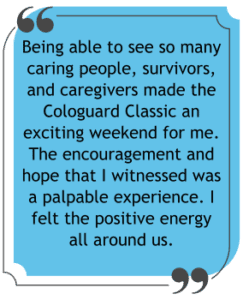 We were able to attend and participate in some fun and informative activities in the “Advocacy Expo Area”, yummy food was readily available in Survivor Central and other areas, there was some TV coverage of the opening ceremonies on the Today Show, there were some workshops/presentations inside the main hotel about treatment options, diagnoses, giving our feedback about our cancer experiences, and treatment innovations. I would like to have been able to attend more because they all sounded very interesting. Some of us touched base with fellow survivors and had personal conversations. I was able to give one of the new CRC (Colorectal Cancer) Bag It Bags to a lady from South Carolina. She and I went to her room and I gave her the guided tour of the Bag. She was extremely grateful to receive the bag. The look of gratitude on her face was rewarding. We exchanged contact information and we’ll stay in touch.
We were able to attend and participate in some fun and informative activities in the “Advocacy Expo Area”, yummy food was readily available in Survivor Central and other areas, there was some TV coverage of the opening ceremonies on the Today Show, there were some workshops/presentations inside the main hotel about treatment options, diagnoses, giving our feedback about our cancer experiences, and treatment innovations. I would like to have been able to attend more because they all sounded very interesting. Some of us touched base with fellow survivors and had personal conversations. I was able to give one of the new CRC (Colorectal Cancer) Bag It Bags to a lady from South Carolina. She and I went to her room and I gave her the guided tour of the Bag. She was extremely grateful to receive the bag. The look of gratitude on her face was rewarding. We exchanged contact information and we’ll stay in touch.
The third and final round was played on Sunday. It was fun sitting, chatting, eating and watching the golfers at the 15th green, Survivor Central with other survivors/loved ones. Individuals representing 17 different cancer advocacy groups were in attendance and bringing awareness to colorectal cancer. There was a 15th hole walk by many of the survivors/loved ones to show awareness and a play-off between the top two players to cap off the tournament. The winner of the trophy was Steven Alker; he came in 12 under par for all three days.
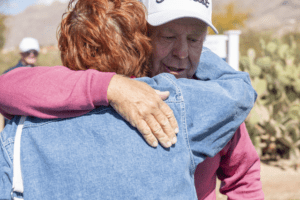 I found out that there were 361 colorectal cancer patients, survivors, caregivers and loved ones from 36 states and Canada who attended this year’s Cologuard Classic.
I found out that there were 361 colorectal cancer patients, survivors, caregivers and loved ones from 36 states and Canada who attended this year’s Cologuard Classic.
It was definitely a weekend well-spent.
Important Reminder: Get screened for colorectal cancer! Screening is vital in detecting cancer early. Learn more about Cologuard®.

 Cancer prevention can feel overwhelming — especially for individuals facing a diagnosis, caring for a loved one, or navigating survivorship. While not all cancers can be prevented, research shows that certain behaviors and informed decisions can help reduce risk and support long-term health.
Cancer prevention can feel overwhelming — especially for individuals facing a diagnosis, caring for a loved one, or navigating survivorship. While not all cancers can be prevented, research shows that certain behaviors and informed decisions can help reduce risk and support long-term health. Actionable Ways to Support Cancer Prevention
Actionable Ways to Support Cancer Prevention

 September 21 marks Take a Loved One to the Doctor Day—a national reminder that good health isn’t just a personal responsibility; it’s an important way we can support each other.
September 21 marks Take a Loved One to the Doctor Day—a national reminder that good health isn’t just a personal responsibility; it’s an important way we can support each other. How You Can Participate
How You Can Participate
 Men are more likely than women to be diagnosed with cancer and have a higher mortality rate. The most common cancers affecting men in the U.S. are:
Men are more likely than women to be diagnosed with cancer and have a higher mortality rate. The most common cancers affecting men in the U.S. are:

 Three rounds of golf were played on March 7, 8, and 9 at La Paloma Country Club and The Westin La Paloma Resort & Spa in Tucson, Arizona. It’s a beautiful Jack Nicklaus-designed course. The purpose of the Cologuard Classic golf tournament is to bring awareness to colon cancer, the importance of early detection, the available treatments, the innovations in detection and treatment, the prevention, recognize those affected, and to answer the huge number of questions that people have about colon cancer. What an exciting and busy weekend! Much walking was involved. Thank you to the Tucson Conquistadores and Exact Sciences and many others for coordinating this event.
Three rounds of golf were played on March 7, 8, and 9 at La Paloma Country Club and The Westin La Paloma Resort & Spa in Tucson, Arizona. It’s a beautiful Jack Nicklaus-designed course. The purpose of the Cologuard Classic golf tournament is to bring awareness to colon cancer, the importance of early detection, the available treatments, the innovations in detection and treatment, the prevention, recognize those affected, and to answer the huge number of questions that people have about colon cancer. What an exciting and busy weekend! Much walking was involved. Thank you to the Tucson Conquistadores and Exact Sciences and many others for coordinating this event. We were able to attend and participate in some fun and informative activities in the “Advocacy Expo Area”, yummy food was readily available in Survivor Central and other areas, there was some TV coverage of the opening ceremonies on the Today Show, there were some workshops/presentations inside the main hotel about treatment options, diagnoses, giving our feedback about our cancer experiences, and treatment innovations. I would like to have been able to attend more because they all sounded very interesting. Some of us touched base with fellow survivors and had personal conversations. I was able to give one of the new CRC (Colorectal Cancer) Bag It Bags to a lady from South Carolina. She and I went to her room and I gave her the guided tour of the Bag. She was extremely grateful to receive the bag. The look of gratitude on her face was rewarding. We exchanged contact information and we’ll stay in touch.
We were able to attend and participate in some fun and informative activities in the “Advocacy Expo Area”, yummy food was readily available in Survivor Central and other areas, there was some TV coverage of the opening ceremonies on the Today Show, there were some workshops/presentations inside the main hotel about treatment options, diagnoses, giving our feedback about our cancer experiences, and treatment innovations. I would like to have been able to attend more because they all sounded very interesting. Some of us touched base with fellow survivors and had personal conversations. I was able to give one of the new CRC (Colorectal Cancer) Bag It Bags to a lady from South Carolina. She and I went to her room and I gave her the guided tour of the Bag. She was extremely grateful to receive the bag. The look of gratitude on her face was rewarding. We exchanged contact information and we’ll stay in touch. I found out that there were 361 colorectal cancer patients, survivors, caregivers and loved ones from 36 states and Canada who attended this year’s Cologuard Classic.
I found out that there were 361 colorectal cancer patients, survivors, caregivers and loved ones from 36 states and Canada who attended this year’s Cologuard Classic.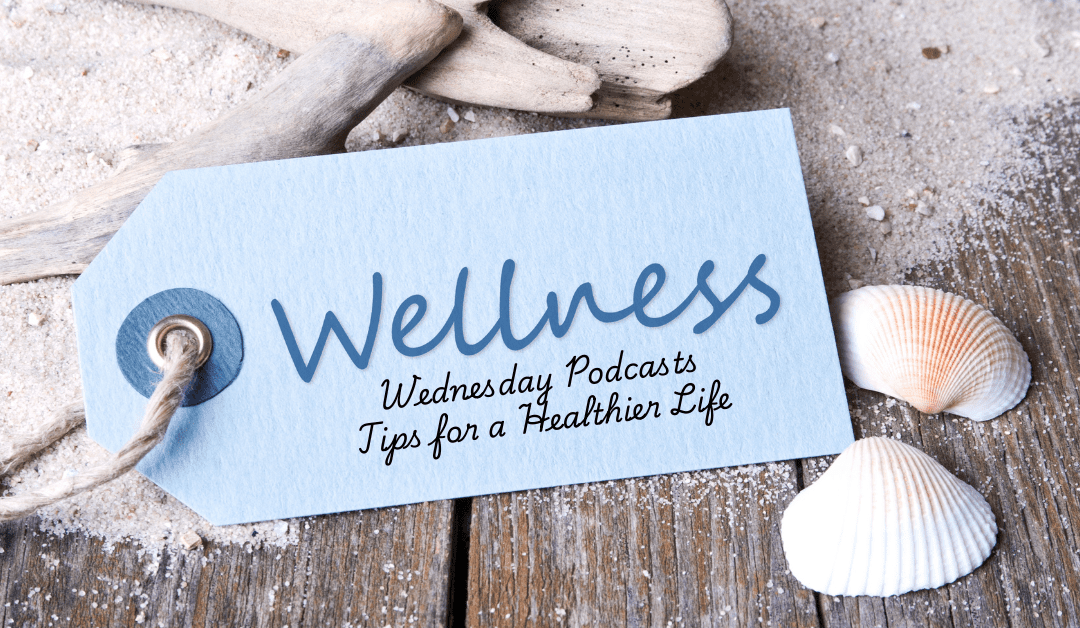
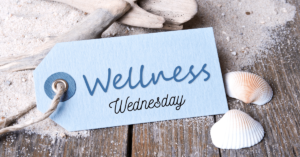 Looking for tips on healthy living and overall wellness?
Looking for tips on healthy living and overall wellness?
Recent Comments